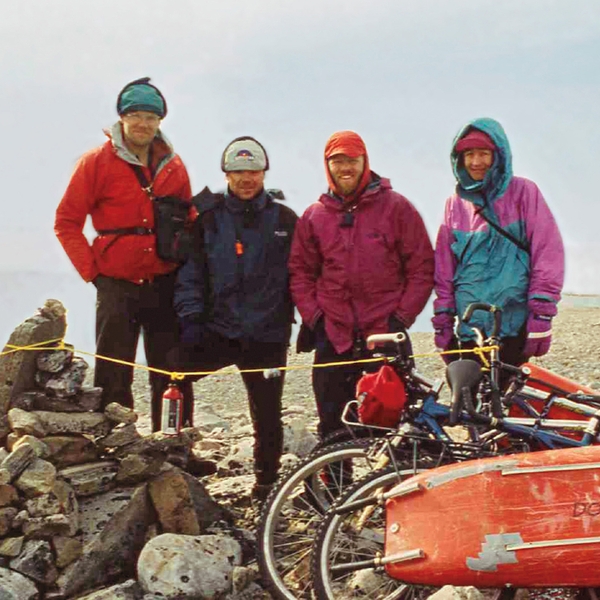Tragedy in Baffin Bay
Mark Jenkins chose to skip a risky adventure with his friends. Twenty-five years later, he’s still haunted by what happened in his absence.
New perk: Easily find new routes and hidden gems, upcoming running events, and more near you. Your weekly Local Running Newsletter has everything you need to lace up! .
Mike Moe’s eldest son came by the house yesterday. He was just out of the psych ward, after serving time in prison. He looked the same—lean, strong, with a long red beard and a mess of dreads. Behind the hair he was quick to smile, like his dad had been. I had a box of outdoor books I’d saved for him, but he said he’d done so much reading in jail that he was taking a hiatus to get his farsightedness back, a metaphor he did not recognize.
His name is Justin, and the last time I’d seen him was in 2015, when he and I and his younger brother, Kevin, went backcountry skiing in the Snowy Range of southern Wyoming. This was before their sister, Carlie, died. At that time, all three of the Moe children—whose ages ranged from 21 to 24—were homeless. Carlie was living in a van in California, Justin had been aimlessly hitchhiking across the West, and Kevin’s house was a snow cave.
Kevin had dug his cave where his dad and I used to dig ours, at 10,000 feet on the eastern end of Wyoming’s Swastika Lake. All winter long at this spot, snow blasts across blue ice into a big stand of lodgepole pines. The trees slow the velocity of the snow, which settles on the leeward side of the trunks, forming drifts 20 feet deep. Kevin had decorated his cave with battery-powered Christmas lights. On the ice platform that served as a bed, he was using the same heavy down sleeping bag his dad had used when we went to Denali together in 1980.
During my backcountry trip with Kevin and Justin, they skied with total abandon and little technique. They would drop down through the trees, legs spread wide, whooping at the top of their lungs. Then, lacking the ability to turn on their skinny cross-country gear, they would inevitably face-plant. Laughing loudly, with snow in their beards, they got back on the boards and kept plowing downhill.
When the terrain eased into rolling hills, we skied in single file through widely spaced pines, and I asked them about their plans. Kevin had already circumnavigated all the islands of Hawaii by sea kayak, solo. Now he wanted to go to Alaska. He played bagpipes and thought he could busk his way up there and back. Justin didn’t have any idea what he wanted to do.
Over the next few years, Kevin actually got to Alaska with his bagpipes, and then he wrote a nonfiction book about the adventure. He became an itinerant carpenter and helped build a shop in my backyard in Laramie. He loved looking at my old slides of his dad.
Justin wandered back to California, became ever more mixed up, took a lot of acid. He was tripping nonstop. One night he heard voices in his head telling him his girlfriend was serving the devil and he tried to stab her, which earned him a sentence of two and a half years for assault with a deadly weapon. He spent some of it in jail, some of it in prison, and some of it in the psych ward.
When he came over yesterday, we hung out in the backyard. I suggested he could help me build a fence, and he seemed interested. I tried to ask him about prison, but he had trouble expressing himself.
“Being in a cell, man. No sunlight, no sky,” he said, throwing his head back and staring directly into the sun. With his eyes closed and the dreads out of his face, he looked exactly like Mike.







